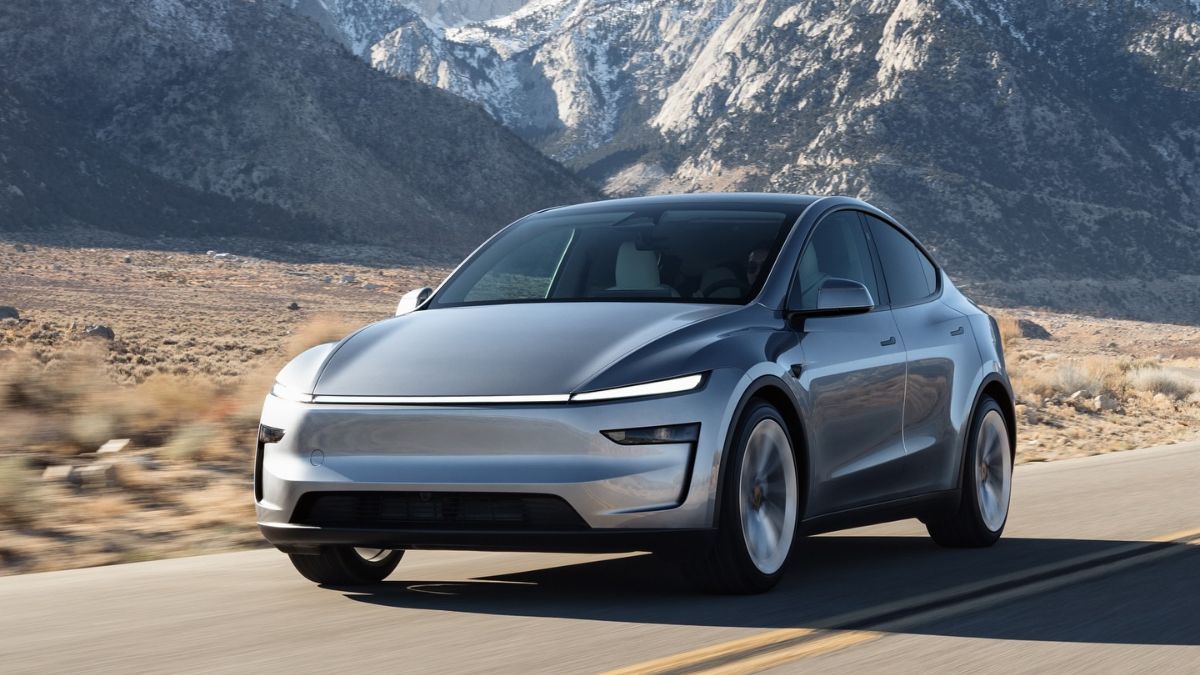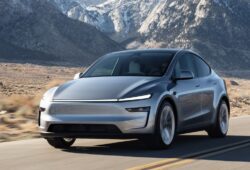
New data from S&P Global Mobility, reported by Reuters, reveals a significant decline in Tesla’s brand loyalty following CEO Elon Musk’s public endorsement of Donald Trump. In June 2024, Tesla led the U.S. auto industry in customer retention, with 73% of Tesla owners purchasing another Tesla when acquiring a new vehicle.
However, this figure began to deteriorate rapidly after Musk voiced his political support for Trump post an assassination attempt on the former president. By March 2025, Tesla’s loyalty rate had dropped to 49.9%, aligning with the overall industry average and signaling a departure from its previously dominant position in customer retention metrics.
ALSO READ. Apple shatters expectations with its financial results: iPhone drives record revenue
What do industry analysts say about Tesla’s loyalty crisis?
According to Reuters, Tom Libby, analyst at S&P Global, said this abrupt decline is highly unusual in the automotive sector. “I’ve never seen this rapid of a decline in such a short period of time,” Libby remarked, underlining the severity of Tesla’s situation. Customer loyalty is considered a cornerstone of marketing strategies in the automotive industry, as acquiring new buyers from competitors is significantly more costly than retaining existing customers.
Which brands are attracting former Tesla customers?
The erosion of Tesla’s loyal customer base has created opportunities for rival brands. Data shows that Rivian, Polestar, Porsche, and Cadillac are now attracting more Tesla defectors than they are losing to the electric vehicle pioneer. This shift marks a substantial change in market dynamics, as Tesla previously enjoyed a near-monopoly on EV loyalty.
Between 2021 and mid-2024, Tesla’s customer acquisition outpaced losses by nearly five to one. Since February 2025, however, this ratio has fallen below two to one, its lowest level on record, according to S&P.
How are Tesla’s product lineup and market competition contributing to the loyalty drop?
Industry observers attribute part of Tesla’s loyalty problem to its aging product lineup. The Cybertruck, Tesla’s only major release since 2020, has struggled to achieve anticipated sales targets. Meanwhile, legacy automakers like General Motors, Hyundai, and BMW have aggressively expanded their EV offerings, intensifying competition in a segment once dominated by Tesla.
In an April earnings call, Tesla CFO Vaibhav Taneja acknowledged that “the negative impact of vandalism and unwarranted hostility towards our brand and people” has affected the company’s performance, while production interruptions further strained vehicle availability. Musk, for his part, insisted that “absent macro issues, we don’t see any reduction in demand.”
Are Tesla’s global sales reflecting this brand perception shift?
Tesla’s challenges extend beyond the U.S. market. Data from S&P indicates that Tesla’s vehicle sales declined by 8% in the U.S. during the first five months of 2025. The European market has been even harsher, with Tesla experiencing a 33% sales drop in the first half of the year. Analysts point out that public backlash against Musk’s political involvement has been particularly pronounced in Europe.
For Tesla, the timing of these challenges is critical. The company now faces mounting competition from Chinese EV manufacturers and traditional automakers pushing aggressively into the electric vehicle space. Garrett Nelson, an analyst at CFRA Research, emphasized that Tesla’s declining market share and the reputational damage linked to Musk’s political activism are among the company’s primary concerns moving forward.
Is Tesla pivoting its business model towards autonomous technology?
Amid these market dynamics, Tesla appears to be shifting focus from consumer vehicle sales to autonomous technology. Some investors believe that Tesla’s future profitability lies not in car sales but in the development of robotaxi services and licensing of its self-driving technology.
Tesla recently launched a limited robotaxi pilot in Austin, targeting influencers and select users, though the service remains unavailable to the general public. Brian Mulberry, portfolio manager at Zacks Investment Management, asserted that “if Tesla succeeds in scaling this technology, there’s a case to be made that Tesla doesn’t need to sell cars and trucks anymore.”
What does the latest Statista dossier reveal about Tesla’s financial standing?
Despite the loyalty challenges, Statista’s 2025 Tesla Dossier highlights that Tesla remains a formidable player in the automotive sector:
- Tesla holds the title of the world’s most valuable car brand, with a brand value of $86.04 billion.
- In the first quarter of 2025, Tesla produced 362,600 vehicles, marking a significant reduction compared to previous quarters.
- Tesla’s operating margin fell to 2.1%, down from 6.2% in the previous quarter.
- The Cybertruck’s underwhelming market reception has contributed to stagnant growth.
- Environmental data from Tesla shows increases in emissions (Scope 2 and 3) and waste generation, underscoring the challenges Tesla faces in maintaining its eco-friendly brand image.
⇒ SUBSCRIBE TO OUR CONTENT ON GOOGLE NEWS









